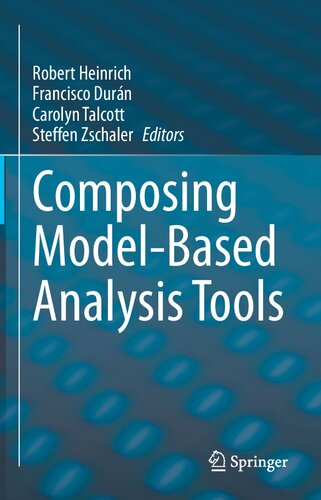

Most ebook files are in PDF format, so you can easily read them using various software such as Foxit Reader or directly on the Google Chrome browser.
Some ebook files are released by publishers in other formats such as .awz, .mobi, .epub, .fb2, etc. You may need to install specific software to read these formats on mobile/PC, such as Calibre.
Please read the tutorial at this link: https://ebookbell.com/faq
We offer FREE conversion to the popular formats you request; however, this may take some time. Therefore, right after payment, please email us, and we will try to provide the service as quickly as possible.
For some exceptional file formats or broken links (if any), please refrain from opening any disputes. Instead, email us first, and we will try to assist within a maximum of 6 hours.
EbookBell Team

4.4
72 reviewsThis book presents joint works of members of the software engineering and formal methods communities with representatives from industry, with the goal of establishing the foundations for a common understanding of the needs for more flexibility in model-driven engineering. It is based on the Dagstuhl Seminar 19481 „Composing Model-Based Analysis Tools“, which was held November 24 to 29, 2019, at Schloss Dagstuhl, Germany, where current challenges, their background and concepts to address them were discussed.
The book is structured in two parts, and organized around five fundamental core aspects of the subject: (1) the composition of languages, models and analyses; (2) the integration and orchestration of analysis tools; (3) the continual analysis of models; (4) the exploitation of results; and (5) the way to handle uncertainty in model-based developments. After a chapter on foundations and common terminology and a chapter on challenges in the field, one chapter is devoted to each of the above five core aspects in the first part of the book. These core chapters are accompanied by additional case studies in the second part of the book, in which specific tools and experiences are presented in more detail to illustrate the concepts and ideas previously introduced.
The book mainly targets researchers in the fields of software engineering and formal methods as well as software engineers from industry with basic familiarity with quality properties, model-driven engineering and analysis tools. From reading the book, researchers will receive an overview of the state-of-the-art and current challenges, research directions, and recent concepts, while practitioners will be interested to learn about concrete tools and practical applications in the context of case studies.